Native leaders hope voter turnout can close the gap in Oklahoma governor's race
- Oops!Something went wrong.Please try again later.
One day ahead of the general election, the push to turn out the Native vote is facing its final test.
Tribal citizens in Oklahoma hope their voting power can decide close contests in a state where roughly 11 percent of adults are Native American. Only Alaska has a larger share.
But they will need to turn the tide on historically low voter turnout, stemming from a time when Native people weren’t allowed to vote at all.
Tribal leaders and voting rights groups have spent months registering voters, hosting candidate events and spreading the word on social media. Lane Factor, the Oklahoma teen who stars in the hit TV series “Reservation Dogs,” recorded a 15-second PSA on the importance of voting for Rock the Native Vote, a nonpartisan voter registration group based in Oklahoma.
Oklahoma elections 2022: A guide to your ballot before you vote
The big challenge now is getting those voters to the polls, said the Rev. David Wilson, who directs Rock the Native Vote. He said the group helped register more than 1,000 voters in Oklahoma cities and tribal communities this year, by far the most of any year since starting in 2003.
“It’s taking a mix of everybody to do what little and big things we can do to make a difference,” said Wilson, a Choctaw Nation citizen. “Native people could be the one percent that makes things happen.”
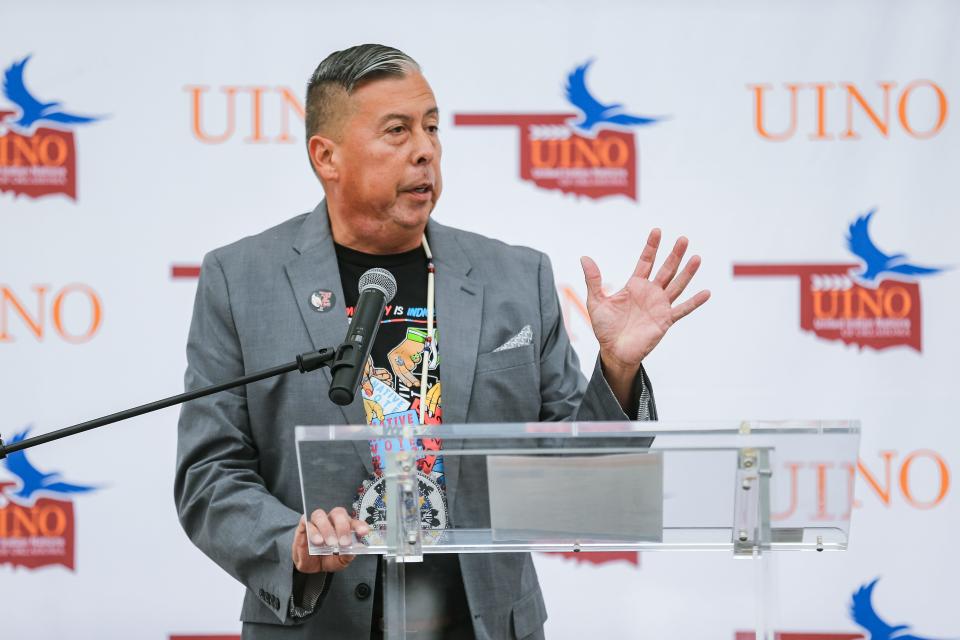
What makes this election stand out, Wilson said, is that a single race is bringing Indigenous voters together to defend tribal sovereignty in a way he’s never seen before.
In the race for Oklahoma governor, Republican incumbent Gov. Kevin Stitt faces Democratic challenger Joy Hofmeister. Recent polls have shown the two are locked in a tight race, though registered Republican voters outnumber Democrats in the state. Issues that are important to tribal nations cross party lines.
Disputes over taxing and prosecutorial power divided Stitt and tribal leaders during his first term in office. Hofmeister has pledged to try to repair Oklahoma’s working relationships with tribal nations.
“We’re all so different, but we all agree that he should not be our governor,” said Louis Gray, an Osage Nation citizen and member of United Indian Nations of Oklahoma, which has hosted two voting rallies in the weeks before the election.
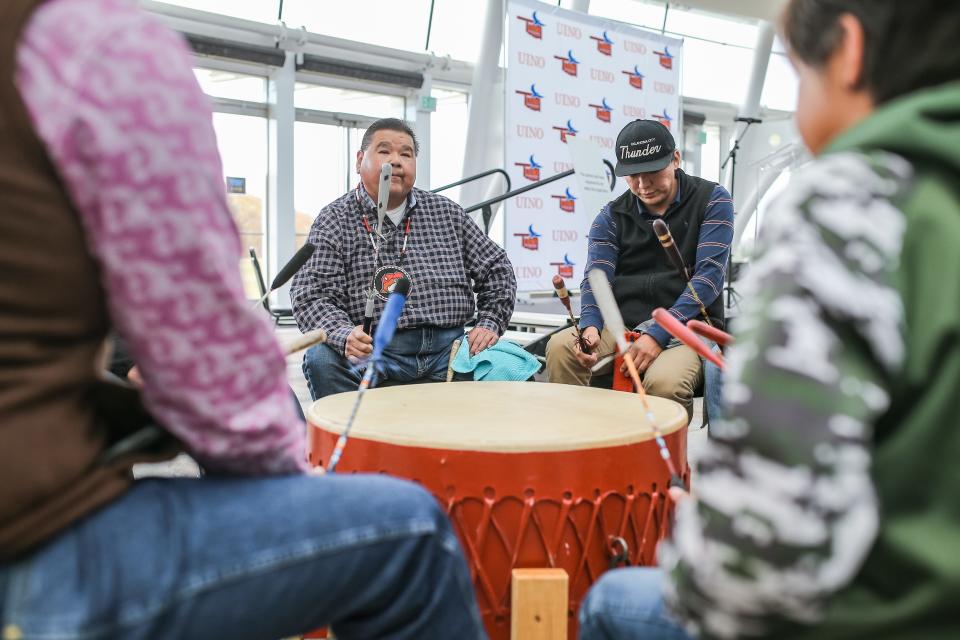
'Sovereignty is on the ballot': Native voters weigh in on top priorities
Hofmeister, the current state schools superintendent, has secured endorsements or financial support from several tribes across the state, including the Apache, Citizen Potawatomi, Cherokee, Chickasaw, Comanche, Kaw, Kiowa, Osage, Muscogee, Seminole and Tonkawa nations. Many of her campaign stops have been in tribal communities.
Stitt, a citizen of the Cherokee Nation, has not reported any backing from tribes. But his campaign has said he has support from thousands of Native Americans.
Kiowa Tribe Chairman Lawrence SpottedBird said he supports Hofmeister because she has pledged to work with tribal leaders and she shares some of the same economic development and educational priorities. He decided to write a formal endorsement letter in support of her campaign to spotlight the importance of voting.
“We’re all Oklahomans, whether we’re tribal citizens or not,” he said. “We should embrace that and work together to advance the interests of all Oklahomans, tribal and beyond.”
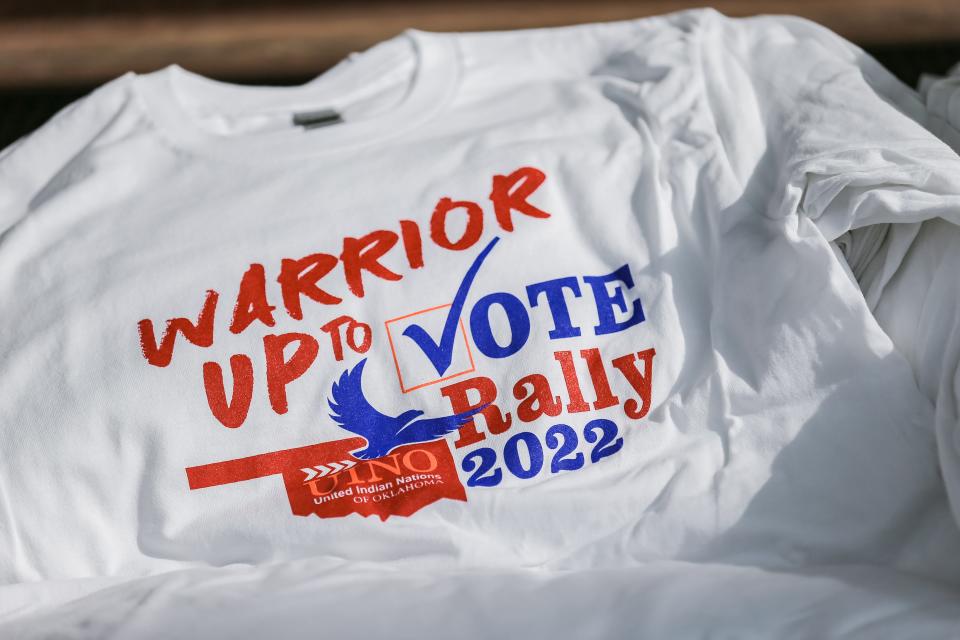
The impact of the Native vote in Oklahoma
The campaign to increase voter participation among Native Americans in Oklahoma is part of a nationwide push. Elected officials at all levels enact policies that affect tribal citizens, but Native people are underrepresented in those decisions and at the ballot box.
Native Americans were not allowed to cast votes in all U.S. states until the second half of the 20th century. Linguistic and geographic barriers remain common today, particularly in rural tribal communities.
Oklahoma congressional races: Four incumbents, one open seat, little doubt
One in three Native Americans who are old enough to vote are not registered, according to estimates published by the National Congress of American Indians. That would add up to more than 100,000 people in Oklahoma alone. The 2018 governor’s race was decided by roughly 140,000 votes.

Researchers have found Native American voters are more engaged in elections where the stakes for tribal communities are more clear. Indigenous voters across the United States turned out in especially high numbers in 2018 amid a broader, nationwide pushback against President Donald Trump.
There were also a record number of tribal citizens running for office that year, including Stitt. He gained widespread national attention and support from several Oklahoma tribes as he campaigned for his first term.
This campaign cycle, many tribal leaders are backing Stitt’s opponent. But Oklahoma voters so far seem less enthusiastic about weighing in. Primary participation dropped statewide this year compared to 2018, when the Republican bid for governor was wide open.
More people have registered to vote since the June primaries. Seven of the 10 Oklahoma counties with the largest Native American populations — mostly on the Cherokee reservation — have added voters at a faster rate this year than the state as a whole.
“Tribes are very excited about getting their folks out to vote,” Wilson said.
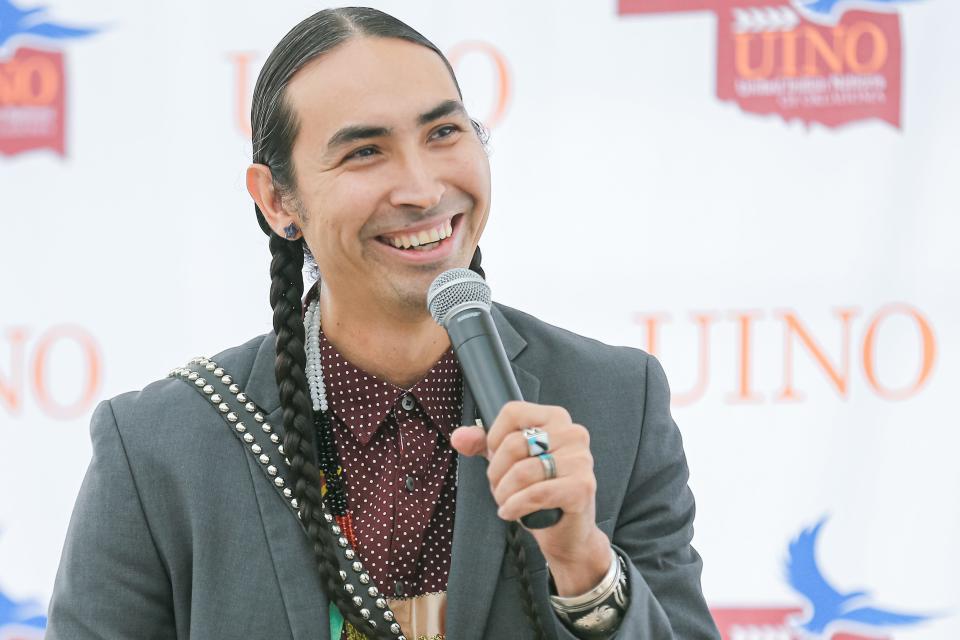
In addition to longstanding efforts by Rock the Native Vote, several Oklahoma tribal leaders came together this spring to launch Vote Your Values, a public awareness campaign aimed at signing up more voters in Indian Country. They believe their nonpartisan messaging has reached people millions of times through social media and TV ads.
But the increase in registered voters this year hasn’t benefited all parties. While the ranks of registered Republican and Independent voters are growing, the number of registered Democrats is shrinking. In Adair County within the Cherokee reservation, more than half of residents are Native American.It has lost 145 Democrat voters since January and gained 141 Independents, as well as 442 Republicans, according to state elections data.
Party lines don’t determine support from tribal nations or citizens, said Gray, the former publisher of the Native American Times. Hofmeister will need to win over some registered Republicans. Whether or not Native voters will cast enough ballots to close that gap, their collective sway has already made the race more competitive, Gray said.
“Native Americans are going to be looked at as having an impact, no matter what,” he said.
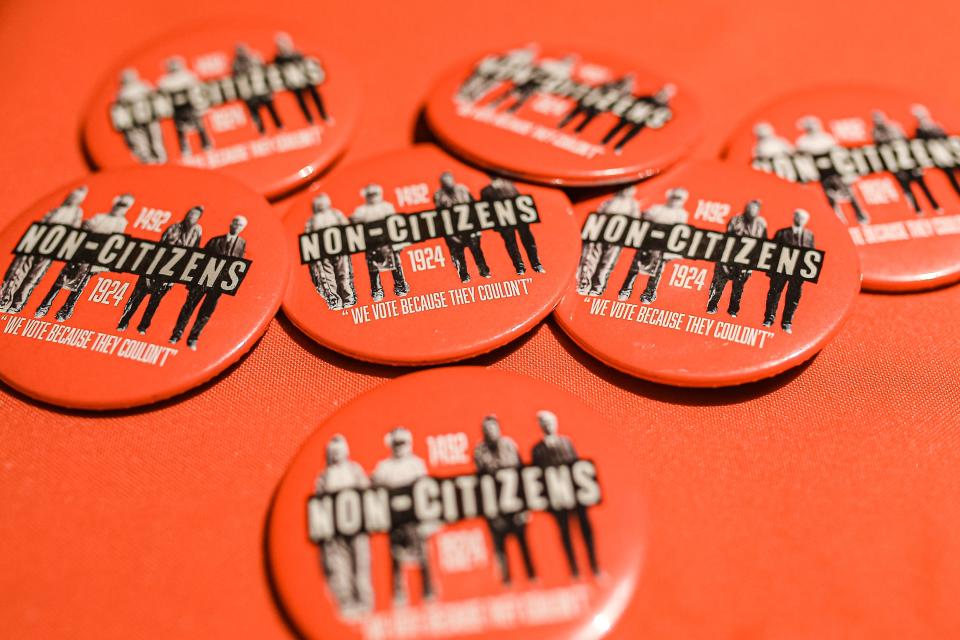
Getting voters to the polls in Oklahoma
Tribal officials and Native leaders hope increased voter turnout will lead to better representation.
At a public event last month in Durant, Choctaw Chief Gary Batton called out the runoff loss of Dustin Reid, a Choctaw citizen vying to represent the area in the Oklahoma House. His challenger won the Republican bid by 67 votes.
“If we would have gotten our families, our friends out to vote, we would have changed that election,” Batton told the crowd of 300 people.
“I just use that as an example to encourage everybody, please get out and vote,” he added later. “Be educated about who you’re wanting to vote for and just make sure that they’re doing the best for us as tribes.”
Batton endorsed Hofmeister for Oklahoma governor in October, joining with leaders of the Cherokee, Chickasaw, Muscogee and Seminole nations. The tribes were also instrumental in helping Hofmeister’s campaign get off the ground last year when she switched parties from Republican to Democrat to challenge Stitt.
Now many tribal nations are doing what they can to get voters to the polls. The Kiowa Tribe's transit system will offer rides to voters regardless of whether they can pay, SpottedBird said.
“Your vote counts,” he said. “We need everybody’s vote, especially in this election.”
Molly Young covers Indigenous affairs for the USA Today Network's Sunbelt Region. Reach her at mollyyoung@gannett.com or 405-347-3534.
This article originally appeared on Oklahoman: Tribal leaders make final push to get out the vote in Oklahoma

